
COLD, FLU & COUGH NEWS AND RESEARCH
Latest Cold, Flu & Cough News and Research
Doctor in Israel reinfected with COVID-19 three months after recovering
There is still a lot to learn about coronavirus disease (COVID-19), which is currently ravaging across the globe. Though scientists are slowly gaining a better understanding of severe acute respiratory syndrome coronavirus 2 (SARS-CoV-2), it is still unclear if being infected once may provide long-lasting immunity against the novel coronavirus.
A comprehensive review of COVID-19's effect on organ systems outside the lungs
In the early days of the COVID-19 pandemic, the disease was characterized by many as a flu-like respiratory infection mainly affecting the lungs.
Harvard scientists uncover the real reason behind goosebumps
If you've ever wondered why we get goosebumps, you're in good company -- so did Charles Darwin, who mused about them in his writings on evolution.
China's Ad5 vectored COVID-19 vaccine safe and induces immune response
A phase 2 trial of an Ad5 vectored COVID-19 vaccine candidate, conducted in China, has found that the vaccine is safe and induces an immune response, according to new research published in The Lancet.
Oxford University and AstraZeneca vaccine against SARS-CoV-2 safe and induces immune response
Promising early stage results from a phase 1/2 clinical trial of the UK's vaccine candidate against SARS-CoV-2 (the virus that causes COVID-19) are published today in The Lancet.
Novel blood test for heart failure could lead to new diagnostics for COVID-19 patients
A new blood test that reliably predicts outcomes for heart failure patients could lead to new diagnostics and treatments for COVID-19 patients as well, according to newly published research from cardiologists at the University of Alberta.
Oxford University and AstraZeneca to publish eagerly-anticipated COVID-19 trial results today
The coronavirus pandemic is still rapidly spreading across the globe, infecting more than 14.44 million people. With more than 188 countries and territories affected, scientists are racing to develop a vaccine against the severe acute respiratory syndrome coronavirus 2 (SARS-CoV-2), the virus that causes the coronavirus disease (COVID-19).
Benefits of routine childhood immunizations far outweigh the risk of SARS-CoV-2 transmission
The health benefits of maintaining routine childhood vaccination programmes in Africa during the COVID-19 pandemic far outweigh the risk of SARS-CoV-2 transmission that might be associated with clinic visits, according to a modelling study published in The Lancet Global Health journal.
Hybrid fungus involved in lung infections discovered
Aspergillus latus, a species of fungus previously found only in soil or plants, has been found for the first time in a hospital environment by an international group of researchers.
Type 1 interferon deficiency as a biomarker for detecting patients at risk of severe COVID-19
Approximately 5% of people with Covid-19 progress to a severe or critical form, including the development of severe pneumonia that progresses to acute respiratory distress syndrome.
Pesticide use can speed the transmission of schistosomiasis
Widespread use of pesticides and other agrochemicals can speed the transmission of the debilitating disease schistosomiasis, while also upsetting the ecological balances in aquatic environments that prevent infections, finds a new study led by researchers at the University of California, Berkeley.
More COVID-19 cases where blood type A is common
Now, a new study by researchers at the University of Ulm, Germany, which is published on the preprint server medRxiv in July 2020, focuses on how blood group distribution is related to the mapped dynamics of the epidemic as shown by its geographical distribution.
Findings show promise for developing vaccines against multiple strains of flu, including SARS-CoV-2
A vaccine additive known as an adjuvant can enhance responses to a vaccine containing the exotic avian flu virus H5N1, so that both rookie and veteran elements of the immune response are strengthened, according to results from an Emory Vaccine Center study.
Singapore study finds virus-specific T cell immunity in recovered COVID-19 and SARS patients
The T cells, along with antibodies, are an integral part of the human immune response against viral infections due to their ability to directly target and kill infected cells.
Requirements for people to wear masks in public are similar to smoking bans
Requirements for consumers to wear masks at public places like retail stores and restaurants are very similar to smoking bans, according to three university experts.
Study shows fused lung cells are pervasive in severe COVID-19
In a recent bioRxiv paper, scientists from Institut Pasteur and other research centers in France demonstrated how pathological effects of severe acute respiratory syndrome coronavirus 2 (SARS-CoV-2) are modulated by cellular proteins that can either inhibit or facilitate cell fusion and subsequent syncytia formation.
NCI funds researchers to investigate how antibody responses affect COVID-19 outcomes
A $328,000 National Cancer Institute grant will enable researchers at Dartmouth's and Dartmouth-Hitchcock's Norris Cotton Cancer Center (NCCC) to investigate one of the mechanisms that may be responsible for the body's inability to fight COVID-19.
Compelling study shows heparin may protect against COVID-19
A compelling new study conducted by an international team of researchers has demonstrated that the widely used blood-thinning medication - heparin - can block infection with severe acute respiratory syndrome coronavirus 2 (SARS-CoV-2), the agent that causes coronavirus disease 2019 (COVID-19).
COVID-19 associated with serious blood clots in leg arteries
COVID-19 is associated with life-threatening blood clots in the arteries of the legs, according to a study published in Radiology.
Eosinophil count can aid in early detection of COVID-19 in patients
A rapid laboratory test, the eosinophil count, readily obtained from a routine complete blood cell count (CBC) can aid in the early recognition of COVID-19 in patients, as well as provide prognostic information, according to new research in The Journal of the American Osteopathic Association.
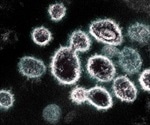
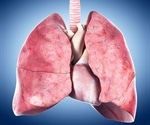
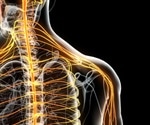
_3798fde37a1c4e8f8d95c3049412b442-150x125.jpg)
_846c6d4c8683448b84492f57218fd64b-150x125.jpg)
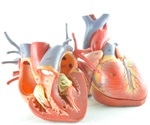
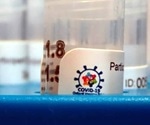

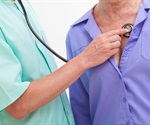

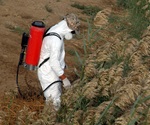
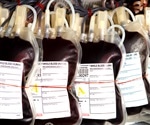
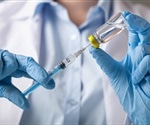
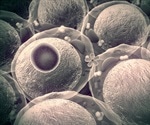

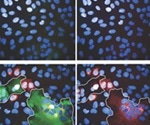
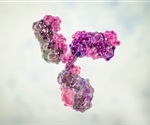
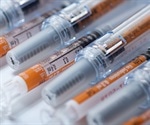
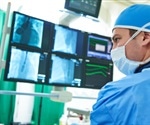
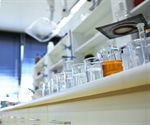
































No hay comentarios:
Publicar un comentario